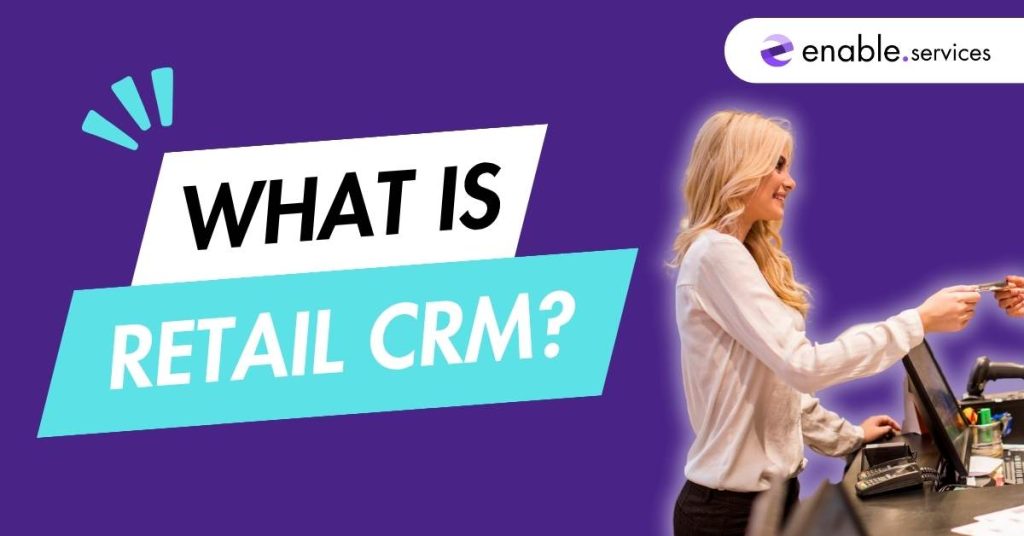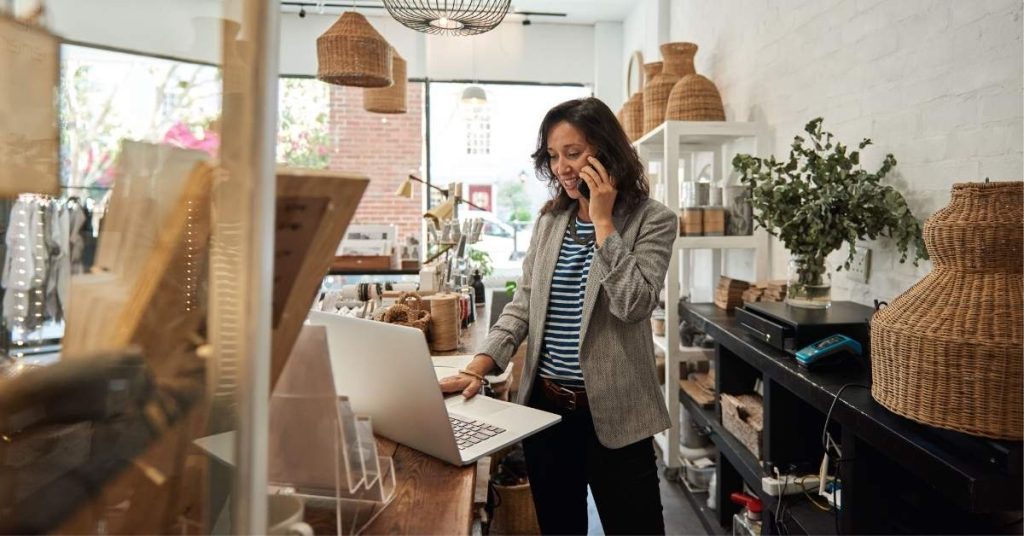What is CRM in Retail?

With so many choices available to consumers today, earning and keeping customer loyalty is a serious challenge for retailers. Shoppers are drawn to brands that know who they are, speak their language, and deliver experiences tailored to their preferences. And with online sales projected to rise by 1.7% in 2025, reaching the highest level since 2022, it’s more important than ever to stay ahead with technology that enhances customer loyalty and increase sales. That’s where CRM (Customer Relationship Management) comes in.
So, what exactly is CRM in retail and why does it matter so much?

CRM in retail: The basics
CRM stands for Customer Relationship Management, and in retail, it refers to the tools, strategies, and technologies that help businesses manage interactions with current and potential customers. The goal? Build stronger relationships, increase customer loyalty, and drive repeat sales.
In a retail context, CRM systems collect and analyse customer data including purchase history, preferences, and communication behavior, to help businesses better understand and serve their shoppers.
Why CRM matters in retail
Retail is no longer just about selling products; it’s about creating experiences. A strong CRM system helps retailers:
- Understand customer behavior
Know what your customers buy, how often they shop, and what channels they prefer (in-store, online, mobile). - Personalise marketing and offers
Tailor emails, product recommendations, and discounts to each customer’s interests and shopping habits. - Improve customer service
Provide faster, more informed support by having access to each customer’s history and preferences. - Boost customer retention
Happy customers are loyal customers. CRM helps you nurture long-term relationships. - Track sales and campaign performance
See what’s working (and what’s not) so you can adjust your strategy accordingly.

Key features of retail CRM systems
Your retail CRM platform should offer a combination of these tools:
- Customer profiles: Centralised records of all customer interactions and purchase history.
- Segmentation: Group customers based on behaviour, demographics, or value.
- Email & SMS marketing: Send targeted messages and promotions and integrate with marketing platforms including Mailchimp, Marketo and Mautic.
- Loyalty program integration: Reward repeat customers and track points.
- Analytics & reporting: Get insights into customer lifetime value, churn rates, and campaign ROI.
- Omnichannel support: Connect data from online and in-store shopping to build a 360-degree view.
Choosing the right retail CRM
The best CRM for your retail business depends on your size, sales channels, and customer base. Look for platforms that offer automation, integrations with your existing systems (like POS or e-commerce systems like Shopify), and scalability.
Our top pick? SugarCRM.
Learn why SugarCRM stands out as the market leader. Or, hear from The Shutter Shop, UK blinds and shutters retailer that utilises a bespoke Sugar system that improves their in-house operations.
In retail, the difference between a one-time buyer and a loyal customer often comes down to the quality of the relationship. CRM helps you build that relationship by turning customer data into action—so you can market smarter, sell better, and keep your customers coming back.
Are you a retailer on the hunt for a new CRM? Or, maybe you’re totally new to CRM systems and need some advice based on your company’s requirements? enable.services are Elite CRM partners. Contact us to book a consultation and let’s start your journey together.



